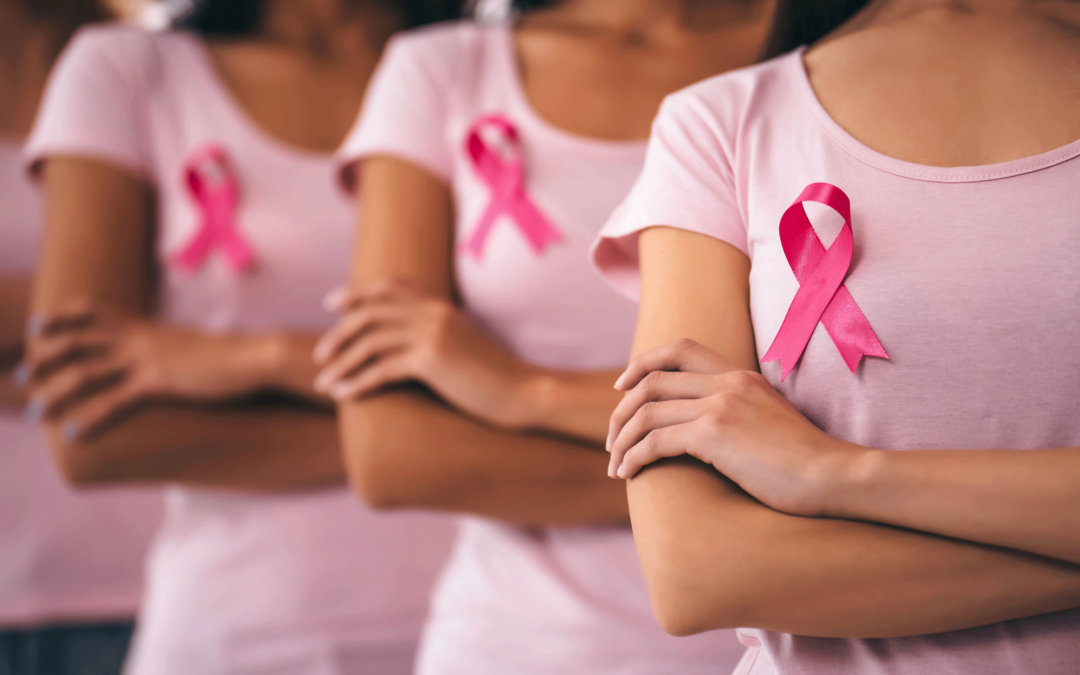Initiation of Breast Cancer Awareness Month
Breast cancer awareness month was first nationally recognized in 1985. This initiative was created from the joint efforts of the American Cancer Society and the pharmaceutical division of the Imperial Chemical Industries. Breast cancer awareness started as a week-long initiative and was spearheaded by former first lady Betty Ford, a breast cancer survivor herself.
Breast Cancer Prevalence
Cancer researches from Susan G Komen found that 1 in 8 women in the U.S will develop breast cancer in their lifetime. A recent study found that over 2.3 million women worldwide faced a cancer diagnosis in 2020 alone. Each year cancer-fighting specialists are developing new ways to combat this disease. As more information unfolds, there are some things that we can do as individuals to become more knowledgeable.
Breast Cancer and Risk Factors
Everyone has cancer cells in their bodies at some point, but our internal immune system can fight them off without us even knowing. Unfortunately, some of us are at a more heightened risk than others to be diagnosed with breast cancer. There are several factors that we should take into consideration. The first is heredity. Researchers have found that people whose mother has been diagnosed with breast cancer are up to 10% more likely to develop breast cancer than others. Maintaining a high sugar diet can make you more susceptible to developing breast and other types of cancer. Sugar directly promotes cancer cell growth. Researchers have found that “cancer cells uptake sugar at 10-12 times the rate of healthy cells.” Girls who start their cycle before age 12 have been shown to be at higher risk. Women who have their first child after age 35 are also at higher risk. It is important to note that studies have shown that women who take oral contraceptives for prolonged periods are at higher risk of all reproduction-related cancers.
Breast Cancer and Stress
Did you know that there are direct links between stress and breast cancer diagnosis?
Doctor Anil K. Sood, a professor of Gynecologic Oncology and Reproductive Medicine, expresses that we should know the impact of short-term and long-term stress on the body. When interviewed, Dr.Sood explained that short-term stress can be understood as “stress that comes from situations you know you can manage or will be over at some set time.” Lorenzo Cohen,Ph.D., professor of General Oncology and Behavioral Science, shared that long-term stress can become lethal over time. This is due to chronic stress’s disruption to the stress hormone called anoikis. This particular hormone eradicates diseased cells and acts to prevent the development of cancerous tumors. Cancer cells can develop and replicate very quickly if the body endures stress for long stents of time.
Breast Cancer and Relationships
Finding out that you or a loved one has been diagnosed with breast cancer can immediately lead to increased stress. The initial uncertainty of survival, chemotherapy, and surgery are just a few of the first things one may think about. In romantic relationships, partners often face challenges with changes in energy, libido, and chronic depression. Parents with cancer may have concerns about how they will take care of their children. Experiencing cancer also takes a toll physically. Many cancer patients lose their hair, have dramatic weight changes, and experience disfigurement. Finances may also have an impact. Lacking insurance or having insufficient insurance means that patients may not receive the best care or may not be able to have reconstructive surgeries. The stress associated with these situations can lead to the body becoming internally more acidic and making it harder to beat cancer.
How to Help
Receiving a cancer diagnosis is a life-altering experience. Cancer patients and survivors who have a strong support team can adjust to this life change more efficiently. For the person experiencing breast cancer, it is imperative that they immediately develop a stress management regimen. They must also incorporate a diet that will make their body more alkaline and less acidic. When possible, finding breast cancer support groups will allow an outlet for stress with other individuals who share the same experience. Working with your employer and inner circle will help to elevate financial struggles and work obligations. Participating in family counseling with a partner, spouse, children, and family will help establish a more manageable transition into the new normal. Allowing oneself to mourn the previous version of themself before and during a cancer battle will help with the internal healing process. Lastly, many people who become cancer survivors may have reoccurring worries that their cancer may return. Having proper communication with your doctor and maintaining a healthy lifestyle will ultimately help manage that and other possible sources of alarm.

Do you need hope for better days ahead? Contact an ROHC therapist today!

